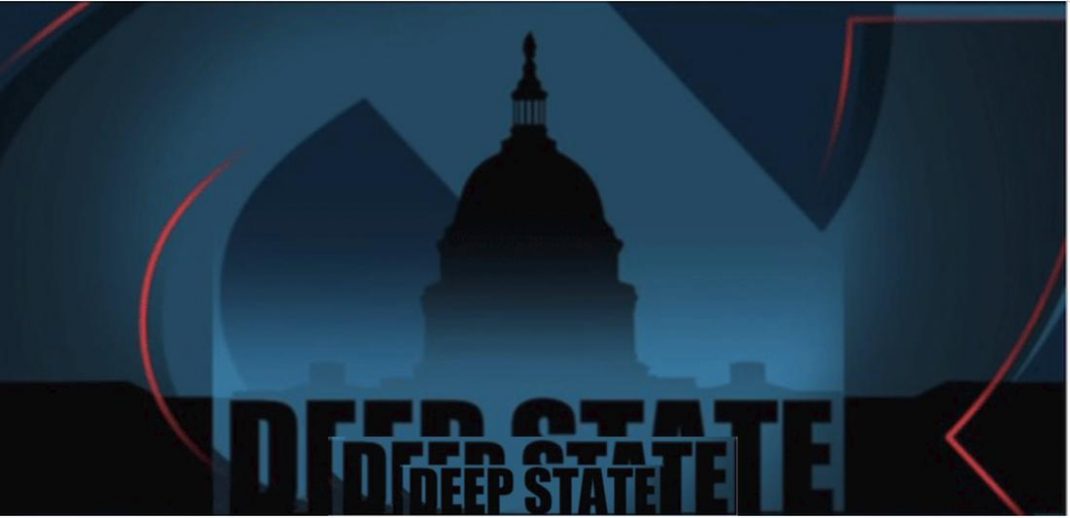
As part of the democratic transition seminar series, the Arab Center for Research and Policy Studies welcomed a lecture given by Dr. Abdelwahab El-Affendi, political science professor and dean of the Faculty of Social Sciences and Humanities at the Doha Institute.
He presented his paper on “The Fantasy of the ‘Deep State’: The Spillover of Propaganda into Political Science”.
He began by noting that the introduction of the concept of deep state over the past few years is a distinct Arab-Islamic achievement as one of the rare cases in which a phrase formulated in the Middle East has turned into a popular commodity in the West, particularly the United States.
He went onto explain that the concept first appeared in Arabic and Turkish as a reference to the hidden internal groups pulling the strings behind the scenes in contrast to the apparent state.
He pointed out that in the case of Turkey, the army, the judiciary, the police and security institutions that were guided by the Kemalist ideology had clear control over decision-making tools.
They had access to legal and supra-legal instruments, the most important of which are the legal immunities and exceptional powers granted to the leaders of those bodies, as well as being able to “veto” the decisions of the elected authorities.
He pointed out that this concept extended to Egypt, especially after the revolution of January 25, 2011, with the army, security services and bureaucracy able to retain control of authority outside the framework of the transitional government, and then the elected government.
From 2016, the concept gained popular currency in the US and some right-wing currents began to promote the idea that a deep state exists in the United States.
El-Affendi argued that in Turkey the phenomenon refers to an ideological state, which is very similar to communism or fascism.
In Egypt, those who do not have the legitimacy of the state raided the functions and powers of the state to impose an agenda that combines the public and private, the Ideological, personal, political and sectarian to resemble the janissaries or fiefdoms of the ancient aristocracies or the Mamluks.
In the American case, al-Afandi saw Trump and his Shia calling the “deep state” on the real state, the state of law without which there is no state here in any real sense of the state, that is, they are planning a “conspiracy to turn America into a copy of Egypt.”
In the US, El-Affendi believes that Trump and his followers were simply referring to the actual state, i.e. the essential rule of law, as the deep state.
In that sense, it appears they are planning to transform the USA according to the Egyptian model.
El-Affendi also referred to the historical and theoretical origins of the phenomenon.
He noted the historical phenomenon of scrutinizing the state, its authorities and sources of legitimacy prevails throughout human, and especially Islamic, history.
Power that rules behind a curtain, of illusion and sophistication, is a reality that may become more complicated when some members of the ruler’s family, ministers, aides and army commanders seize control of the actual power at the expense of the rightful leader.
From a theoretical perspective, however, he saw that the idea of a “state within a state” or a party exercising political hegemony behind a curtain was largely due to the Marxist theory that invented the idea of a “deep state” (without naming it) when he claimed that the “bourgeoisie” (and other dominant classes) are the rulers behind the curtain in all capitalist states.
This vision has been developed to the modern day to encompass the rule of the elite, the rule of transnational corporations, or the power of the military-industrial complex in the United States and elsewhere.
El-Affendi concluded by saying that the designating such “mafia” arrangements as the state negates the concept of the state, which is a public matter, not a fief under the ownership of any party, and is subject to the rule of law.
This usage legitimizes (intentionally or not) the theft of state responsibilities for the sake of special interests.
Here, the defense of this theft becomes a defense of the “state” against those who want to undermine it and destroy it, and the terminology becomes a weapon of confusion and ideology.
This is where the danger of the misuse of terms and the leaking of propaganda and slogans into political science and discourse is clearly demonstrable.
___________




